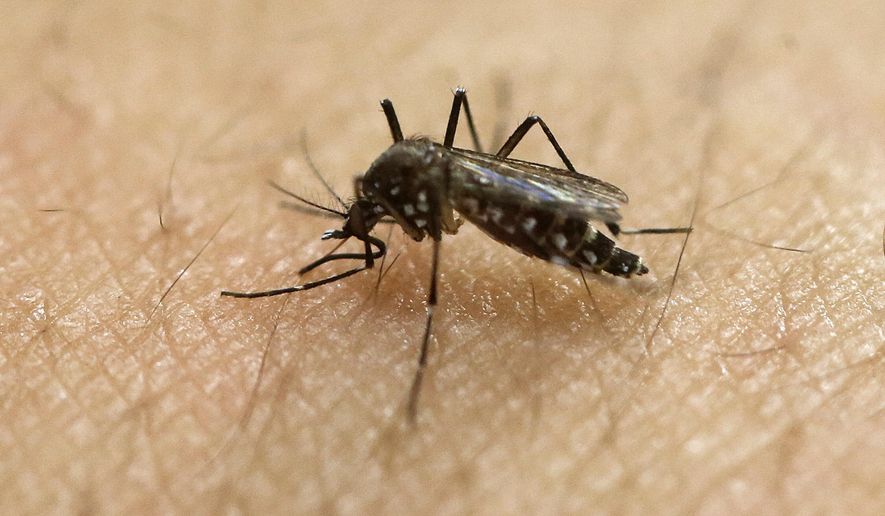The Food and Drug Administration told two of Florida’s most-populous counties to stop collecting blood until they are able to screen each donated unit for Zika, citing fears that mosquitoes are finally spreading the virus on the U.S. mainland.
The advice to Miami-Dade and Broward counties is in direct response to four mysterious cases that don’t appear to be linked to travel.
“These may be the first cases of local Zika virus transmission by mosquitoes in the continental United States,” the FDA said.
Previously, the Centers for Disease Control and Prevention had been able to link all 1,657 Zika cases in the states and D.C. back to travelers from hard-hit Latin America, plus one case of accidental laboratory transmission.
The disease typically spreads by mosquito bite, however, and federal and state officials have been girding for a localized outbreak as summer temperatures climb and the insect’s population flourishes.
The Florida Department of Health said investigators are still trapping mosquitoes and waiting for lab tests before they definitively conclude whether the new cases were spread by insects and not through other means.
“Door-to-door outreach and sample collection are ongoing in all cases. The department will share more details as they become available,” the agency said Thursday.
The Miami-Dade County Department of Solid Waste Management said it is working to wipe out mosquito breeding sites, spraying for larvae and adult mosquitos and testing the samples of the bugs for Zika virus.
“Residents are reminded that they are the first line of defense against the spread of mosquito-borne viruses,” the department said Thursday. “Residents can help by draining any standing water outside their homes, covering areas where standing water is likely to accumulate, and using mosquito repellent outdoors.”
At the federal level, the FDA said counties next to Miami-Dade and Broward should implement their blood-screening recommendations as a precaution. It is also urging people who’ve traveled to those counties to wait for a month before donating blood.
“Given that there is a strong probability of local mosquito-borne transmission of Zika, it is important to ensure that the blood supply is as safe as possible,” said Amesh Adalja, senior associate at the University of Pittsburgh Center for Health Security. “Until appropriate and adequate testing is in place, it is rational to limit blood donations from those counties in which Zika is suspected to be in the local mosquito population.”
Puerto Rico, which has reported more than 3,750 locally acquired cases, imported blood from elsewhere in the U.S. for a short period earlier this year, though it resumed its own collections once it obtained tools to screen for Zika.
White House press secretary Josh Earnest on Thursday said President Obama has spoken to Florida Gov. Rick Scott, a Republican, about the latest cases and will press Congress to revisit a funding package to combat Zika when it returns to D.C. in September.
“There are now four suspected cases of nontravel-related Zika transmission. And that’s concerning because of the threat that that virus poses to pregnant women and newborn children,” Mr. Earnest said. “So congressional action on that would be welcomed.”
Senate Democrats blocked a $1.1 billion package before skipping town for a seven-week recess, saying the GOP-crafted deal shortchanged the effort and had too many strings attached.
Mr. Obama wanted nearly $2 billion to combat and research the virus, though Republican leaders said it would be irresponsible to tack the cost onto the deficit, so it paid for $750 million of its proposal by taking money from Obamacare, the Ebola fight in West Africa and other accounts.
Because Democrats filibustered the package, the White House will have to stretch some $589 million it already shifted earlier this year to the fight.
Republicans say less than 20 percent of that money has been spent, so the administration should speed up its act.
“It’s awfully slow,” Rep. Tom Cole, Oklahoma Republican, said in a phone interview. “If they’re going to spend money this slowly, why would you give them more?”
• Tom Howell Jr. can be reached at thowell@washingtontimes.com.




Please read our comment policy before commenting.